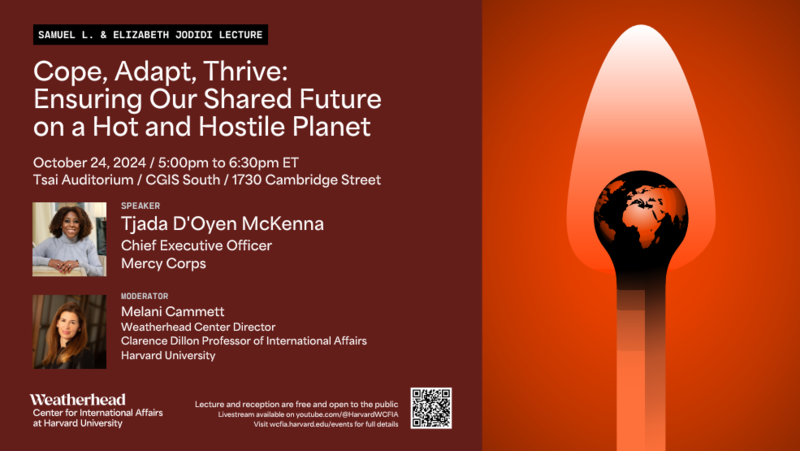Cope, Adapt, Thrive: Ensuring Our Shared Future on a Hot and Hostile Planet
Tsai AuditoriumThe last five years have illuminated our growing global interconnectedness: from the pandemic to volatile food prices and shortages to global tech outages. As we enter the second quarter of the twenty-first century, the twin threats of climate change and conflict are now converging with urgent global consequences for all: destruction of food systems and livelihoods; mass displacement and migration; and fierce competition over depleting natural resources. This convergence has unraveled decades of progress and strained our global systems to their breaking point. It is no coincidence that the world’s most worrisome hotspots are mired in conflict alongside the worst real-time impacts of climate change. Our hotter and more hostile world requires a bold new agenda for a shared humanity. Neither conflict nor climate change can be ignored or addressed by individual nations acting alone and in self-interest. Neither can we address climate change or conflict separately, as if they are somehow disconnected global challenges with divergent impacts and solutions. We must come together and partner with those most impacted by conflict and on the frontlines of climate change to forge innovative, cross-sector solutions born from communities themselves to build a better world where everyone can thrive.
